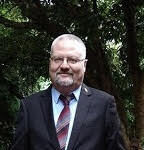
Klaus Döring
Critics say giving workers unlimited time off can actually deter them from taking holidays – so are minimum leave policies the answer? An interesting question by BBC-author Maya Yang… .
It reminds me on my own. For example, I decided to stop teaching at the moment. I found out that from month to month, I really only got very limited time for myself and my family.
Could insisting that people take a minimum number of days off be a better way to ward off burnout? Well, maybe. Talking again about myself: I am in the great situation deciding about my days off and maybe unlimited time off. Just to avoid a burnout… . How about millions of Filipinos?
It’s interesting to know that every country in the European Union is required by law to offer at least four weeks of paid holiday, with varying accrual policies per country (Austria takes the lead with 35 days of annual paid holiday). Similarly, in New Zealand, employers must provide employees with at least four weeks of paid holiday, not including public holidays or sick leave. The Philippines is much more different. Yes, I know… .
While still staying in Germany, I had the pressure of needing to prove myself and the mentality that I shouldn’t take many days off. Most often, it’s up to management to create a culture where workers feel comfortable taking leave, says Sir Cary Cooper, an organisational psychology professor at the University of Manchester. Many bosses lack the social and perceptive skills to detect employee burnout and remind ambitious employees of the importance of taking breaks.
Creating choices? Why not? While minimum leave policies don’t operate solely on ‘trust’ placed in employees, it’s not a model that is feasible for all companies – for those with tens of thousands of employees, tracking individual and collective leave, let alone scheduling individual holiday check-ins and reminders, would be very difficult to scale.
How often should you have time off work? For most people, it is recommended to take at least one day off per week, such as a weekend day, to rest and recharge. Additionally, it is important to take periodic vacations or extended breaks from work or other responsibilities to prevent burnout and maintain motivation. (Klaus Döring)


